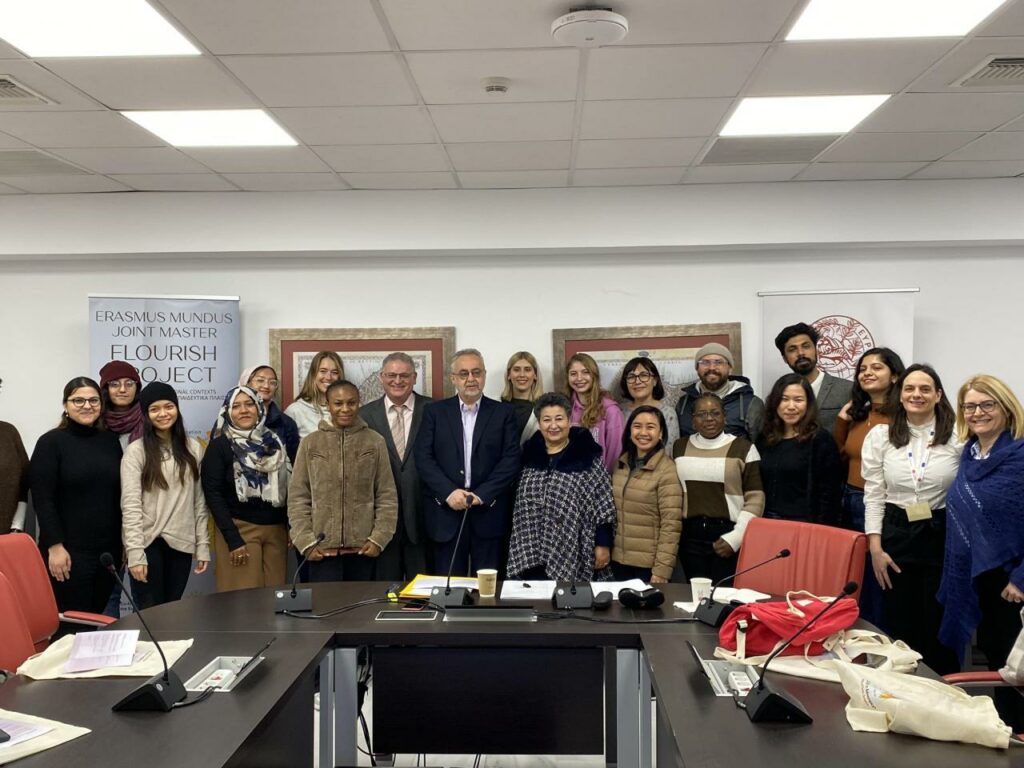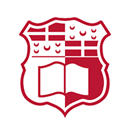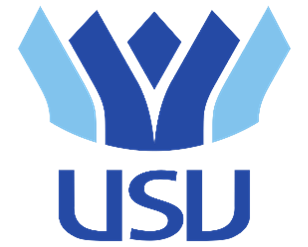Welcome! from the Project Coordinator
Dear Readers,
Welcome to the second newsletter of the FLOURISH project. Indeed we can say that the project is actively FLOURISHING as the first group of students having successfully completed their first semester at the University of Malta and are now at the University of Crete for the second semester. We had a wonderful semester with students from different parts of the globe eager to learn and share their rich experiences with each other. It was a deeply enriching experience for all. Another FLOURISH experience has been the number of applications we have received for the second edition. We are very pleased to have received over 600 scholarship applications for the second edition of the Master programme starting in October 2024. This augurs well for the success of the programme, ensuring that we will have a highly qualified and experienced group for the second edition of the programme as well. Whilst we keep supporting the first group on their resilience journey in Europe, we make plans to welcome the second group in the coming months.
Professor Carmel Cefai,
Flourish Project Coordinator

The students celebrating the start of the winter break at the University of Malta on 20th December 2023
Welcome to the Second Semester from Professor Anastassios Matsoupolos, University of Crete
The Second Semester of EMJM Resilience in Educational Contexts at the University of Crete, Greece started officially with the Orientation Day on February 16, 2024, while classes started on February 19th. In the Orientation event, we had the honor to have in a live link the Vice Rector of Academic Affairs Professor George Kossioris, who welcomed the international students. In addition, a written message/greeting by the University Rector (Professor Kontakis) and the Secretary General of the Ministry of Education of Greece (Professor Odysseas Zoras) was read by the Convener of the event Eirini Apanomeritaki. The Vice Rector of Infrastructure & Economics Konstantinos Spandoudakis, gave an in person warm welcome to the international students in the city of Rethymno and the University of Crete academic community.

The FLOURISH students met in person with the professors of the course including Professor Triliva, Professor Perakis and Professor Matsopoulos, while Professor Adamopoulou was outside of the country and thus could not attend. The class schedule and the philosophy of the courses were also discussed and many questions of the students answered. The UOC Semester 2 slogan is “Flourish in Adversity!” which was printed in the bags given to the students along with useful information about the city of Rethymno, the schedule of classes and other informational materials. Basic orientation about the history of the university, the departments, the services offered (educational, cultural, sports facilities) was presented via video. An educational activity named “Listening Circles” and coordinated by Mrs. Perakis has given both the professors and the students a chance to get to know each other better and record educational needs and expectations. The day included a walking tour of the campus. The tour included the library, the counseling center, the lecturing halls and the cafeteria along with other auxiliary facilities. At the end the orientation day, a free lunch for all FLOURISH students was provided.
What our students are saying
Please follow the link to check out the interview with Master in Resilience in Educational Contexts student representative Vasiliki Chatziefthymiou:
Interesting Facts
The emblem of the University of Crete is based on a Hellenistic coin found in Gortyn (430–300 B.C.) and depicts Europa in reflecting stance while sitting on olive tree branches. The emblem was designed in a medal by the sculptor Aspasia Papadoperaki.

The University of Malta traces its origins to the founding of the Collegium Melitense which was set up through direct papal intervention on 12 November 1592. Founded in 1592, the Collegium Melitense is the country’s highest educational institution. The University of Malta is the oldest university in the Commonwealth outside of Britain.

Stefan Cel Mare is named after Stephen the Great who was Voivode (or Prince) of Moldavia from 1457 to 1504. Stephen reigned for more than 47 years the Romanian principalities while opposing strong rivals such as the Ottoman Empire, Poland and Hungary and won 34 battles out of 36 conducted.

In 1288, the first Portuguese University was established in Lisbon. In 1537, the University was transferred to Coimbra. From the late eighteenth century, higher education was re-established in the capital, Lisbon. With the first Republic, in 1911, University of Lisbon was born and, later on, in 1930, was founded, the Technical University of Lisbon, both resulting from more than seven centuries of history.

Important Dates and Upcoming Events
-
- Applications for scholarship closed on the 31st December 2023. The consortium is currently busy evaluating the scholarship applications. The rankings of accepted candidates will be published when all selected applicants have confirmed their participation. This is expected to be in the beginning of April 2024.
-
- Applications for self-funding are open till the 28th June 2024.
-
- The first cohort of students are currently choosing a topic for their dissertation.
-
- Information sessions will be organised by the partners in Spring in their respective countries.



